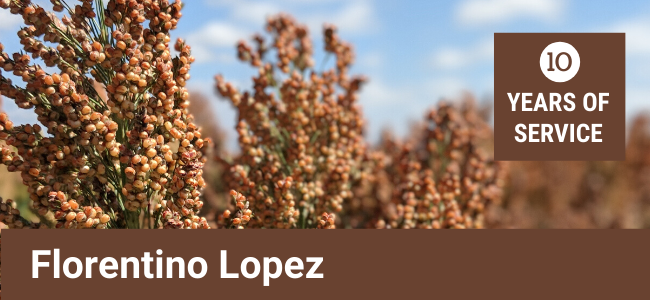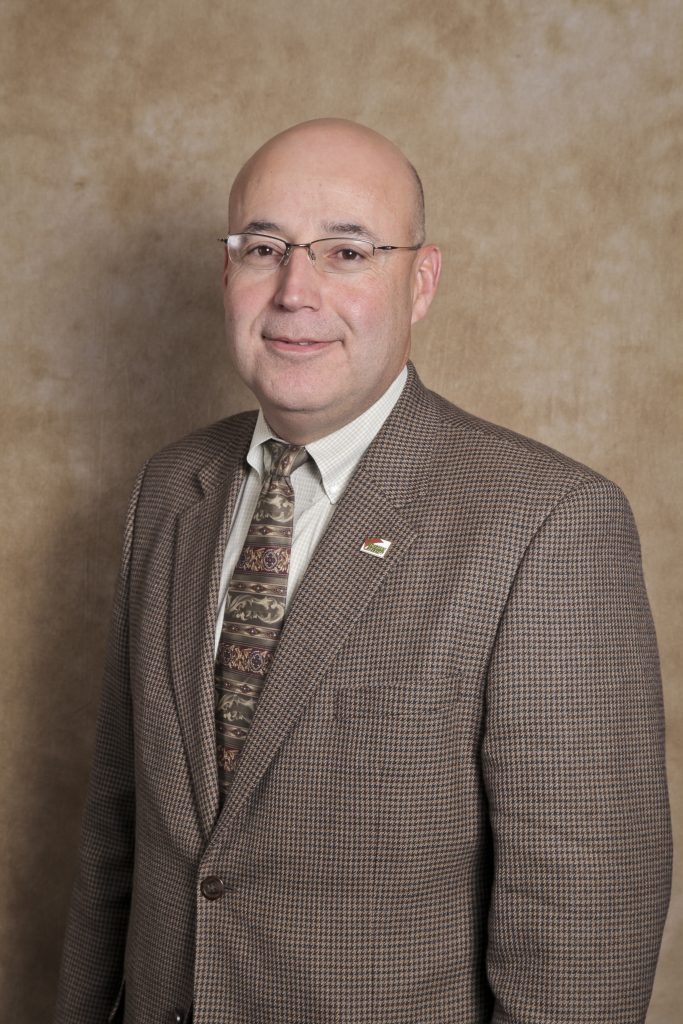Whether for baijiu in China or aquaculture in Southeast Asia, watching a market for U.S. sorghum grow from idea to sale is one of the most exciting parts of the United Sorghum Checkoff Program’s partnership with the U.S. Grains Council (USGC), according to Florentino Lopez, the group’s executive director.
“What I value more than anything is that ability to create those relationships that have provided information, knowledge and resources,” Lopez said. “I like that initial planting of a seed and watching it, nurturing it, developing it – being able to see it grow to where we can reap the benefits for the farmer.
“It is awesome to be able to develop a marketplace that is not currently using a traditional commodity like sorghum. Our ability to educate and hopefully transition them into sorghum or another U.S. commodity for the first time is rewarding and helps create new demand for our farmers.”
Lopez has a long history working to develop international markets. After graduating from Texas A&M University-Kingsville, he worked in the swine industry, including on the export side of the business. As a result, he had exposure to many different markets, both domestically and abroad.
“It was very common for me to not only welcome foreign guests here for a better understanding of how swine production works in the United States, but, also, I ventured off and worked in other countries – specifically on sales and service – helping market swine products and live animals and building facilities internationally,” Lopez said.
He applied that experience to his work with the Council when he joined the Sorghum Checkoff as the marketing director, before assuming his current role in 2011. He pointed out that international markets have always served an important role for sorghum, even prior to the demand surge from China, as one-third of total production is typically exported. This value is reflected in a long, shared history between the sorghum industry and the Council – with sorghum being one of the founding members.
“Sorghum has always been on the world stage,” Lopez said. “We have always had a position where sorghum was needed internationally to satisfy the needs of end-users and a variety of different marketplaces.”
Lopez recognized the joint efforts of state organizations, the Sorghum Checkoff and the Council to develop one of the largest marketplaces in recent years – China – with all the organizations working together to capture demand for sorghum there. Like USGC staff on the ground in China, Lopez maintains regular contact with Chinese customers, who continue to express their desire to purchase U.S. sorghum.
“We have never lost sight that U.S. sorghum can and will serve an important role not only in the Chinese marketplace, but also in many other marketplaces,” Lopez said. “We believe the U.S. sorghum farmer has a commodity that fits a variety of different marketplaces and has value beyond what is typically realized. Our role is to make sure we are providing the information necessary to help people understand how this commodity could better serve their industries long-term.”
In the interim, he has continued to push for other international opportunities for U.S. sorghum, including aquaculture in Southeast Asia, pet food in South America, food sorghum in Japan, and many more.
The Council recognized Lopez for 10 years of service to the organization during its 59th Annual Board of Delegates Meeting earlier this year in Cincinnati, Ohio. Reflecting on a milestone anniversary, Lopez looked to the future, saying that continuing to grow markets – old and new – requires both organizations to evolve their efforts together.
“The last 10 years have been great,” Lopez said. “But being a part of the last 10 years will not be the same as the next 10 years. The question now is how are we going to evolve to make the next 10 years better than the last 10?”
About The U.S. Grains Council
The U.S. Grains Council develops export markets for U.S. barley, corn, sorghum and related products including distiller’s dried grains with solubles (DDGS) and ethanol. With full-time presence in 28 locations, the Council operates programs in more than 50 countries and the European Union. The Council believes exports are vital to global economic development and to U.S. agriculture’s profitability. Detailed information about the Council and its programs is online at www.grains.org.


